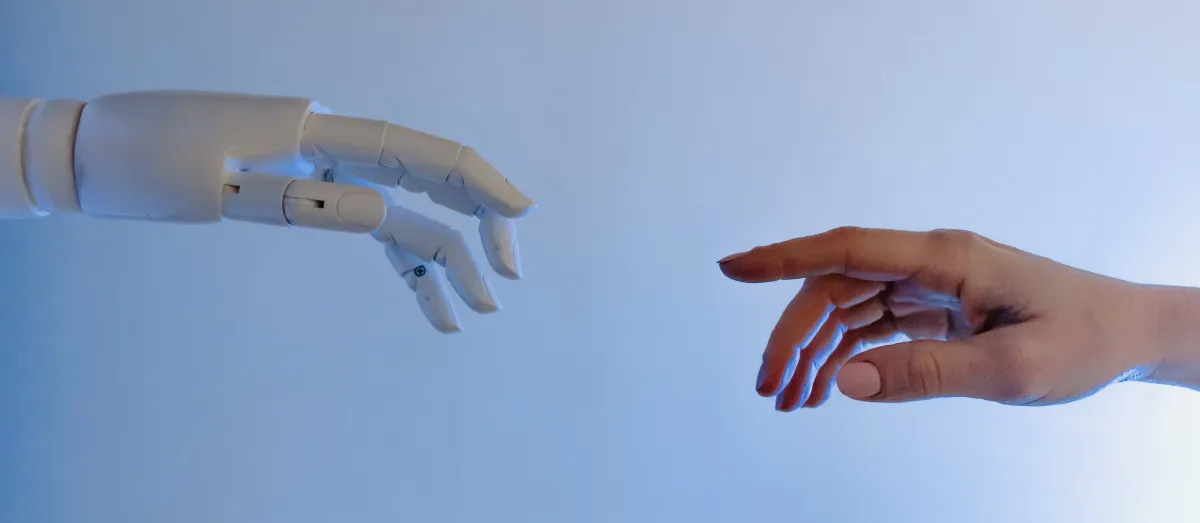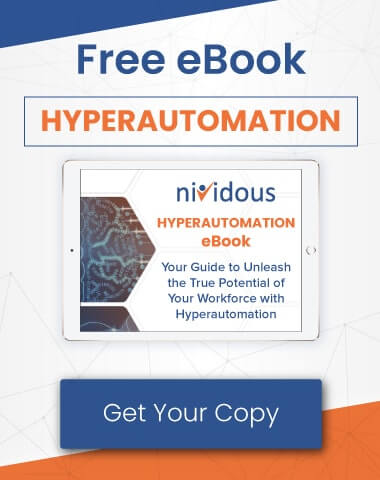If you’re a working adult, chances are you’ve given at least some consideration to the future of your job. It used to be that creative pursuits such as art and writing, and even cutting-edge tech careers like computer programming felt fairly bulletproof in terms of resisting automation. Just a couple of years ago, the idea of AI generating books, artwork, and complex programs that rival those of human creators seemed like a distant problem for future generations.
Now, however, the tides have turned.
With the release of ChatGPT and its subsequent clones, the world has seen a huge boom in AI-generated text, artwork, and code. The proliferation of AI content and the lightspeed advancement of intelligent automation has made a lot of people uneasy about the future of their careers.
If you happen to be in this boat, keep reading. Chances are, you don’t need to be so worried.
Why Intelligent Automation Is Not Going To Erase Your Career Opportunities Anytime Soon
1. Most job descriptions can comfortably expand to embrace AI.
AI has a long way to go before it can operate without human oversight in most workplace circumstances. Open up ChatGPT and ask it to write a moving, emotional short story about a boy and his dog. It may churn out a technically correct story using plenty of emotional words, but chances are you won’t be moved to tears by reading the results. It will be a long time before you can pick up a novel written by an AI program and enjoy it just as thoroughly as you would a book by your favorite author.
AI is just as limited by its intellectual capabilities as it is by its emotional ones. ChatGPT, for example, has landed many students in hot water because it produced content that sounded factually correct but in reality was anything but. Anyone not doing their homework and making sure they thoroughly understand the content being discussed is likely to get burned when AI boldly gives them all the (incorrect) answers.
Some unfortunate people have discovered the hard way that AI isn’t nearly as reliable as it looks at first glance. Even relatively simple math can throw it off, but you’d never know unless you were double-checking the AI’s work.
So, while coders of yesterday had to know how to write code on their own with the occasional outside reference, coders of tomorrow will have to know how to instruct AI to write good code. They’ll be the brainpower behind coming up with innovative ideas, writing effective prompts to get AI to do exactly what they want, and shoring up the gaps when AI’s capabilities fall short. In other words, the job isn’t disappearing, it’s simply evolving.
Similarly, writers are increasingly asked to use AI to brainstorm topics, generate outlines and important bullet points, summarize longer works, and otherwise augment their creative workflows. And many artists have now found a niche plugging in different prompts to DALL-E and using their creative talents to choose the best options for the task at hand.
In other words, if you can adapt the contribution you make to work with AI to produce better, faster, or more efficient results than you could accomplish on your own, you can somewhat future-proof your job.
2. Advancing AI has actually opened the door to entirely new careers.
The truth is, some jobs will likely be eliminated due to the AI boom. Many entry-level writers, coders, artists, and other creative types have already lost their jobs due to ChatGPT, DALL-E, and similar applications, with more likely to follow. But, for the savvy and open-minded, having one door close has always meant it’s simply time to look for another open one.
Take a look at LinkedIn or Indeed job postings, and pay special attention to the posts asking for AI prompt writers or folks comfortable working with AI tech in their jobs. Workplaces that have already welcomed AI with open arms have dozens or even hundreds of active listings like this on job sites at any given time. Think of how much this field stands to grow as more and more companies begin to encourage the use of AI on the job.
Until crafting specific and effective prompts becomes as second-nature to us as browsing through a smartphone, there will be plenty of opportunities for folks to brand themselves as ChatGPT specialists or something similar.
If you can adapt the contribution you make to work with AI to produce better, faster, or more efficient results than you could accomplish on your own, you can somewhat future-proof your job.
If you feel your job will soon be threatened by AI, your best bet is not to fight against it; instead, learn these newly emerging AI skills and bend this brand new job market to your advantage. Even if your current job does become obsolete, you’ll be poised and ready to leap on the next big trend.
3. Smart companies encourage collaboration between employees and AI technologies.
With the understanding that AI is not ready to take over for human workers in most instances, and that humans by themselves are not capable of working as quickly or as efficiently as a computer, it doesn’t make sense for businesses to focus on one or the other alone. As things currently stand—and are likely to stand for the foreseeable future—the best way for businesses to stay competitive is to leverage AI in addition to their employees, rather than replacing employees with AI.
In practical terms, this means adopting solutions such as Business Process Management (BPM). BPM is a wonderful, happy medium where humans and AI can work together to achieve the most efficient processes possible.
As an example of BPM in action, imagine a company where a group of fifty people each work on tasks that get assigned from a shared pool. Some people—due to their work histories, education specializations, geographical locations, experience levels, or natural talents—are better at some tasks than others. A handful of people might truly excel at one type of task, but fall short when it comes to other tasks.
BPM excels at stratifying pooled requests and classifying them based on a number of complex criteria. The system can create one model of the requirements for the tasks coming in and compare it to another model of employee profiles. It can prioritize which employee would be best suited to handle any given task and make sure that employee has the time in their schedule to handle the workload.
If the top candidate has two or more available tasks they’d be well suited to, the system can make an intelligent assignment decision that takes into account the next best person for the job, the top candidate’s next available schedule opening, the deadline for the tasks, or any number of other factors that could affect the outcome.
In other words, BPM can find that perfect marriage between every task and the person most likely to excel at that task. At that point, the company will be operating at its most efficient rate possible.
This is just one example of what BPM can do in the workplace. At its core, what BPM does is enable human employees to work at peak efficiency. This may look different in different companies or even between different employees. A programmer could, for example, use a BPM system to handle all the minute disruptions that arise throughout their most productive hours of the day. They can spend more time coding “in the zone” and less time dismissing email notifications and putting together reports.
Far from replacing the programmer’s job, AI can make it more pleasant and more efficient while leaving time for the programmer to truly focus on innovation and creativity. We believe the same is true for all of the other careers experiencing a big change due to AI.
Even if intelligent automation seems threatening right now (after all, change is always a little bit scary, and this is a big change for many people) it might end up making your job much more enjoyable in the long term—if you’re willing to adapt.
Are your intelligent automation investments delivering real ROI?
Watch our on-demand webinar to discover strategies and frameworks for measuring genuine intelligent automation ROI that go beyond hard numbers.





